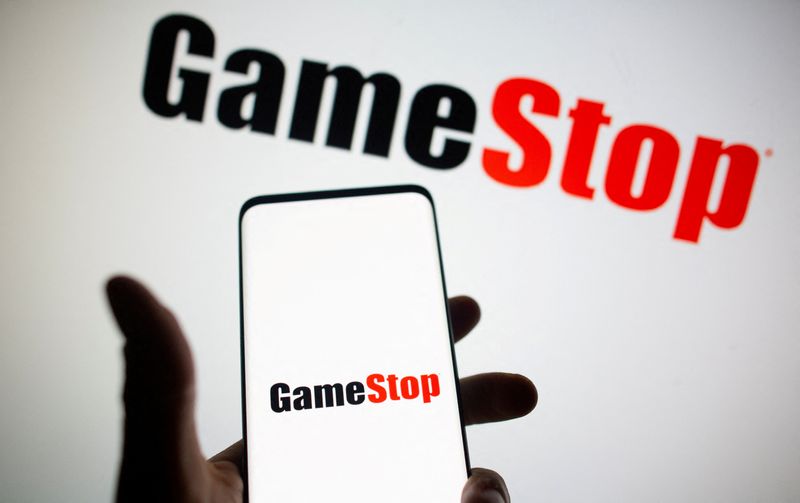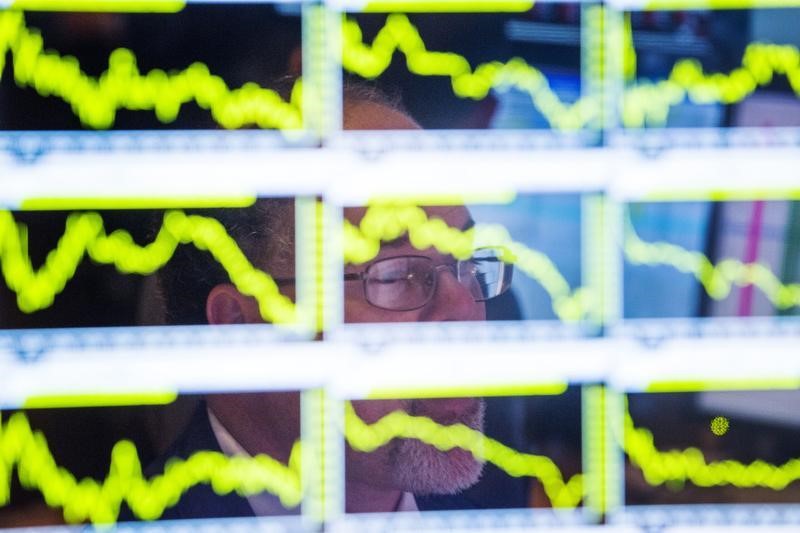 © Reuters. FILE PHOTO: GameStop logo is seen in this illustration taken February 2, 2021. REUTERS/Dado Ruvic/Illustration/File Photo
© Reuters. FILE PHOTO: GameStop logo is seen in this illustration taken February 2, 2021. REUTERS/Dado Ruvic/Illustration/File Photo(Reuters) – Shares of GameStop Corp (NYSE:) jumped 15% in premarket trading on Friday after the video game retailer at the heart of last year’s retail trading frenzy said it would seek shareholder approval for a stock split.
The plan comes as shares of GameStop and other so-called “meme” stocks including AMC Entertainment (NYSE:) Holdings are seeing renewed interest from retail investors, who are piling into riskier assets emboldened by hopes of a resolution in Russia’s conflict with Ukraine.
Shares of GameStop, which have nearly doubled in value in the past two weeks, rose another 15% to $192 on bets that a stock split, which makes shares of a company more affordable, would boost the value of the retailer by attracting more retail traders.
Stock splits are becoming more common as companies look to manage “their stock price in what is considered an investor-friendly range”, said Howard Silverblatt, senior index analyst at S&P Dow Jones Indices.
In the past two years, Apple (NASDAQ:), Nvidia (NASDAQ:) and Tesla (NASDAQ:) have split their shares, while Amazon (NASDAQ:) and Google-parent Alphabet (NASDAQ:) recently announced upcoming share splits.
“Are splits the new buyback? Probably not, but highlights an additional tool to push stock prices higher despite financial theory saying otherwise,” J.P. Morgan analysts said in a note.
Silverblatt signaled there could be more stock splits in the offing, noting that there were still eight stocks in the priced over $1,000 and 15 between $500 and $1,000.
Shares of most of the companies that have either announced or split their stock so far were trading over $500 before the split.
Shares of AMC and Bed Bath and Beyond Inc, another retail darling, gained nearly 3% and 5%, respectively, in trading before the opening bell on Friday.
Fusion Media or anyone involved with Fusion Media will not accept any liability for loss or damage as a result of reliance on the information including data, quotes, charts and buy/sell signals contained within this website. Please be fully informed regarding the risks and costs associated with trading the financial markets, it is one of the riskiest investment forms possible.

